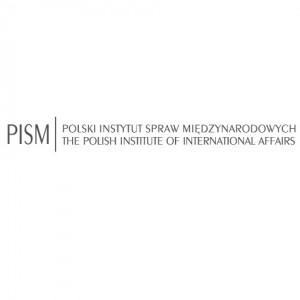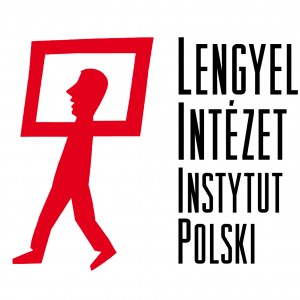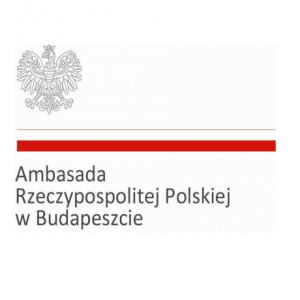
22 Sep Dwa Bratanki: The Implications of the Crisis in Ukraine
CEID organised a conference with four panel discussions on Polish-Hungarian relations in partnership with the Corvinus Society for Foreign Affairs and Culture (CSFAC) and the Polish Institute of International Affairs (PISM) supported by the Embassy of the Republic of Poland in Hungary and the Polish Institute in Budapest. The main purpose of the conference was to enhance foreign policy cooperation between Poland and Hungary through emphasizing the main points of convergence and common interests, while also identifying the roots of the existing differences in order to find potential strategies for their settlement.
Speakers of the first panel discussion were:
András Rácz, Senior Research Fellow, The Finnish Institute of International Affairs
Anton Bendarzsevszkij, Director, Geopolitical Institute of Russia and Central Asia (PAGEO)
Stanislav Secrieru, Senior Research Fellow, Polish Institute of International Affairs
Olga Zelinska, PhD, Polish Academy of Science
The discussion was moderated by Edit Inotai, Senior Fellow of CEID
The following text is the summary of the discussion
The Implications of the Crises in Ukraine on the Bilateral Relations of Poland and Hungary
Perceptions do matter
Although Poland and Hungary have similar approaches towards Ukraine – both are providing humanitarian aid to the country – the interpretation of their policies by the Ukrainian public opinion differs significantly. Based on a recent survey, Poland is widely considered to be a friend of Ukraine, while Hungary has a rather negative reputation mostly due to the governments’ declarations on minority issues.
There is a significant difference in the bilateral relations of the two countries regarding Ukraine and Russia. Therefore, these two dimensions of their foreign policies, although essentially intertwined, should be analyzed separately. As to Ukraine, there is no substantial difference in hard actions. The fundamental guidelines of Hungarian foreign policy still correspond to the NATO/EU frameworks and match the strategic goals of Poland. The fact that the Hungarian government eventually abstained from vetoing the sanctions – despite its explicit dissent – is a tacit sign of its allegiance. Furthermore, the Hungarian Defense Forces have contributed to the strengthening of the Eastern Flank, recently taking over the Baltic Air Policing mission of the Alliance. Thus, when it comes to the crisis in Ukraine, the picture is not so dark in terms of hard actions. Still, due to the disastrous political rhetoric, especially bringing up the issue of Hungarian minorities living in the Ukraine at a time when the country was on the verge of collapse, deeply harmed the public image of Hungary.
On the other hand, regarding their relationship to Russia, the two countries follow completely different directions. Hungary has committed itself to Russia with the development of the Paks II nuclear power plant, which is a serious strategic concern: Paks II is a 40 year project classified indefinitely by the Hungarian government. A further dimension is the growing influence of Jobbik, the Hungarian far-right party with proven connections to Putin that should give reason for serious concerns. In light of these disturbing events, it is highly unlikely that trust in the Hungarian leadership will be recovered in the Ukraine, as long as the current political elite remains in power.
The lack of resilience in Hungarian foreign policy
Hungarian rapprochement to Russia was based on the US reset initiated by the Obama administration in 2009. The Eastern Opening announced by the newly elected Hungarian government in 2010 was meant to follow the trend of strengthened bilateral relations with Moscow. Evidently, apart from the larger geopolitical framework and our wish to align our foreign policy strategies with the US, Hungary has always been highly dependent on Russian energy. When the crisis in Ukraine erupted by the end of 2013, the rules of the game have changed, urging most countries with close ties to the Russian Federation to revise their foreign and security policies. The major controversy in Hungarian foreign policy towards Russia lies in its lack of resilience and versatility. Not only had the Hungarian government not distanced itself from Moscow, but negotiated a deal with Putin just in the middle of the crisis on the extension of the Paks nuclear plant that irreversibly tied the country to Russia for an additional 40 years. As a result, on top of the overdependence on Russian gas, Hungary is bound by contract to maintain at least normalized bilateral relations with its Eastern partner. There is no doubt that making a U-turn at this point is not a viable solution. On the other hand, as a NATO and EU-member, Hungary cannot refrain from all punitive measures against Russia, even if they have their tolls on its economic interests. At a time when the geopolitical realities compel many to make a – false – parallel with the Cold War era, every country needs to decide which side to take. The apparent lack of Hungary’s clear engagement with regards to the Ukrainian crisis is the basis of harsh international criticism.
Poland as a trading state
In order to understand the true nature of Poland’s policies towards Ukraine, we must look at the picture from an economic point of view. Poland and Ukraine both consider themselves as trading states, explicitly prioritizing the pursuit of economic growth in the context of their broader foreign policy strategies. Despite the widespread belief, Poland was not at all obsessed with the security threat posed by Russia; on the contrary, the Polish political leadership was pragmatic enough to see a potential trading partner in its historical foe. In fact, Poland’s cautiousness when evaluating the prospects and consequences of Russian FDI pouring into the country was the crucial characteristic that differentiated Warsaw from Budapest. Nevertheless, after the outset of the Ukrainian crisis, Russia ceased to be an attractive trading partner, and has become unreliable even as a business partner. By threatening the rule of law as the foundation of profitable business agreements, Moscow could have put the economic prosperity in danger. Hence, when Warsaw expresses its readiness to pay the price of long-term security with its solid stance on sanctions, security is not solely confined to defense matters. At the same time, the Polish government’s eagerness to grant a wide range of assistance to Ukraine, including the support of administrative reforms, is stemming from the expectation to gain access to an attractive market for Polish investments, once the country has recovered.
What is next?
When it comes to further actions, urging to mobilize more EU resources to support the solution of the crisis in Ukraine is the primary responsibility of Poland and Hungary, being countries with first-hand experience in transformation and democratization processes. While Hungary should critically revise its ill-fated multivectorial foreign policy strategy, both countries must focus their efforts on enhancing their cooperation regarding the assistance to Ukraine. The sharing of experiences and practices – even worst practices –, the joint training of civil servants, the testing of administrative reforms in selected regions can all contribute to the implementation of reforms needed for the recovery of Ukraine. But besides these measures, the decisive factor will be the durability of political will.
Partners: Sponsors:





